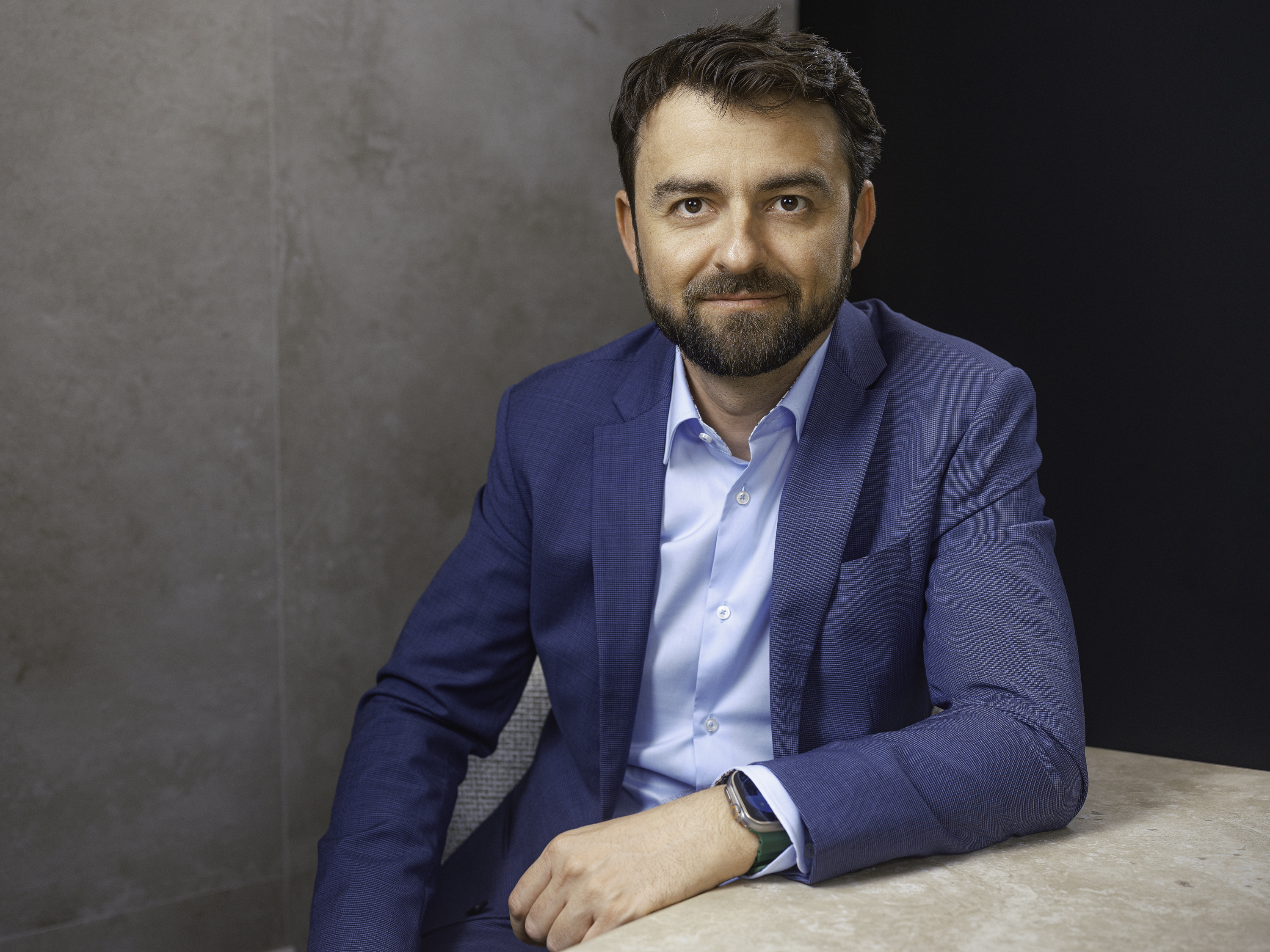Meta Estate Trust tripled total revenues in the first half of this year compared to the same period in 2023, doubled its net profit and reaches a 10% return on equity threshold, says Alexandru Bonea, the company's co-founder and CEO.
"Last very good results, H1 compared to 2023 we tripled our total revenues, we doubled our net profit and we reach this very healthy threshold of 10% return on equity. For H1 it is a little bit more, it is 11.5% but this 10% return is one that we will target in the future because it is a balance between investment performance and risk. Our advantages are clear, similar to those of rate companies out there. The investment is liquid and granular," he told the ZF Capital Markets 2024 conference.
Alexandru Bonea said at the ZF event:
-We are a young real estate holding, we are listed on the Aero market and we invest in real estate. We have a diversified strategy, we have mainly three business lines: a classic business line, income recurring assets, assets that we buy and rent. We go mostly into the hospitality, retail and healthcare market, working with serious brands on very long-term contracts. The second line of business is one with much higher returns, but also much higher risks, is real estate development in partnership. We have partners, real estate developers, mainly residential, and we invest with them in equity or junior debt and, last but not least, we have an apartment trading business line, where we buy and resell apartments.
-We see that the real estate market, at least this year and last year, has managed to deliver some very polar results. We had real estate projects in the market that did very well and real estate projects that stagnated. We've been fortunate to be on the good side of the market and we've had good real estate investments and we're reporting good results.
-We see that interest rates are coming down and automatically when interest rates come down the valuation of these assets goes up, because the yield at which you can buy them goes down. So right now I think it's the best opportunity. We're not just looking at retail, we're also looking at healthcare and we're also looking at hotels at the same time.
-Real estate investment is going very well here, it's a Romanian sport. What's so special about this law? In my opinion, it is not in any way a tax facility, but it is precisely a question of how the state manages to bring in more money, because if we look at the main investors at the moment, the main investors are individuals who own apartments and rent them out. And we all know that rental contracts are often not taxed. That might not happen in the case of an installment, because you buy shares in a company and you go ahead and you pay dividends, you pay that dividend tax. So basically what this law does is it makes an entire real estate portfolio behave from a tax and operational standpoint like owning a single real estate property.
-We are directly concerned by this law and we hope that this year maybe it will pass the second chamber of Parliament. We think the text of the law is very good, very applicable. Of course, every time it can be improved, but if we continue to ask for requests, to improve it, we will never see the law. So I think we have to move forward exactly as it is now. The text of the law is not a tax facility, on the contrary, it is a way for the government and the state to attract more money.
-The residential construction market clearly depends on residential projects. Residential projects clearly depend on building permits and the appetite of developers to invest further. This case is clear, i.e. the residential construction market is very low. The even worse part is that around this market there are many other sub-markets, we have all sub-contractors and I don't mean just in the construction area, we have designers, real estate agents and so on.
-It didn't affect us very much, because we don't have an exposure to this market, rather we have an exposure to the real estate market. What's very important to explain here is that the real estate market works very differently depending on the time frame in which you look at it. In the short term it is clearly demand-led, and any shock in demand affects your number of transactions and the price.
-In contrast, in the long term we are looking more than 3 to 5 years, it is very strongly supply driven, because you can't do over 3,000 apartments - 10,000 apartments overnight, you have to plan ahead. They have a very high inertia, which means that for Bucharest, I don't see how prices can't increase significantly. At the same time we need to find the tools to unlock the market for residential real estate projects, because many other sub-markets suffer and, in the end, the economy suffers.
-As a real estate market, it is clear that Romania has a lot of potential, we have very large infrastructure investments, so I believe that Romania can be on the map of international investors in the context of real estate because it has a lot of room for growth.
-Objectives to list on the main market remain for 2025.It's not something that we assume, it has to be proposed in the general assembly, it has to be voted, but that's where the objective remains. In terms of the AeRo market and our capitalization value at the moment, I think it's a mega opportunity. I think there's a lot of potential for growth and I think it's also a specificity of the moment we are in.
-On the equity side, it's clearly very difficult to raise equity money for the real estate market at the moment. Instead, we see other opportunities, because the real estate market is very liquid, we are a listed company, we have some liquidity and then there is an opportunity for both us and the real estate owners to buy their assets, give them shares in the company and they unlock their value.
-We are currently trading at a discount. If we were to do a capital increase, we would have to do it at a valuation of 100 - 200 million, our capitalization is at 66 million, so automatically at the moment the best investment is to buy shares on the market. And we have a buyback program in place for that, which is over a long term, 18 months, and it will start buying more and more of the market because it scales exponentially. So right now, I think the best way to convince shareholders is not in a capital increase, but rather to convince them to buy shares right now, because it will also help our buyback program, it will also help our share price and liquidity.




